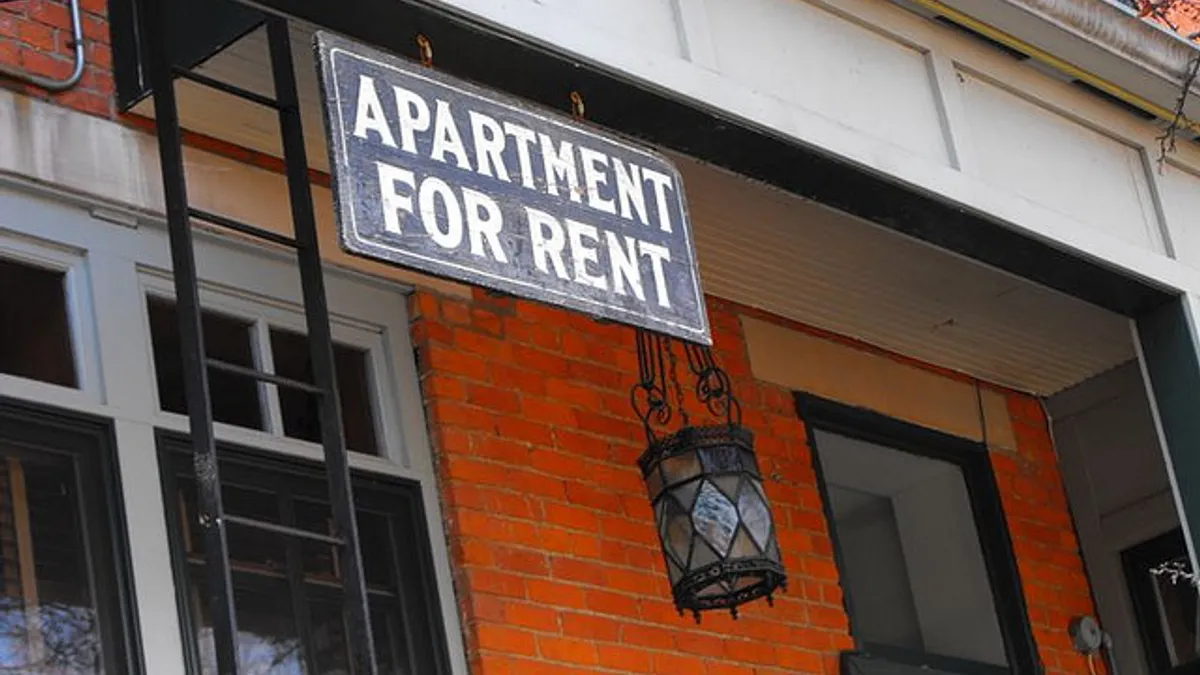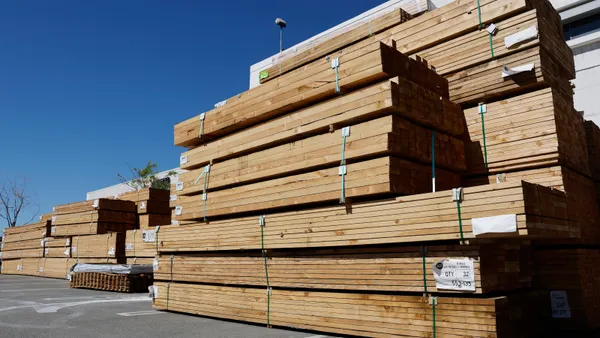Dive Brief:
-
U.S. rents rose 0.7% year-over-year in March to a median monthly payment of $1,408, marking the slowest rate of growth since November 2012, according to Zillow.
-
Rents in the San Francisco Bay Area slowed more than those in any other major U.S. metro during the past year, with rents down 0.1% after posting an annual growth rate of nearly 10% in March 2016.
-
Home values rose 6.8% year-over-year to a median $196,500 in March. Meanwhile, there were 5% fewer homes on the market in March than there were a year ago, with Minneapolis, Columbus, OH, and Seattle seeing the most significant decreases in inventory.
Dive Insight:
Although rent growth is slowing, those payments remain a drag on households looking to save up to buy. In 2017, renters across the U.S. will need to earn an additional $168 annually to keep up with the year's projected rent increases, according to Zillow. The real estate listing website projects the national average rent to reach $1,420 by February 2018.
In markets with higher demand and lower inventory levels, residents would need even greater annual income gains to keep pace with local rent increases. Renters in Boston, Los Angeles and Seattle, for example, would have to make an additional $1,000 annually to keep pace with rent growth.
In many markets, a monthly mortgage payment is more affordable than a monthly rent payment. But buyers' inability to save for a down payment on a home is hampering their ability to become owners. Zillow reported earlier this month that seven in 10 renters across 20 U.S. markets were unable to purchase a home because they couldn’t afford the down payment. Putting 20% down on a median-priced home requires more than two-thirds of the country's median annual income — a figure that can double in the country’s most expensive markets.
High rents are joined by student debt, a tighter lending environment and a shortage of entry-level housing stock as barriers to first-time buyers.
That’s creating a holding pattern, with a recent Freddie Mac report noting that many renters say they’ll keep renting even if rates rise. Six in 10 respondents (59%) to the survey expect to rent their next home — up 55% from September 2016. The share of renters who expect to own slipped from 45% to 41% for the period. Those actively working toward homeownership dipped from 21% to 15%.
For more housing news, sign up for our daily residential construction newsletter.












